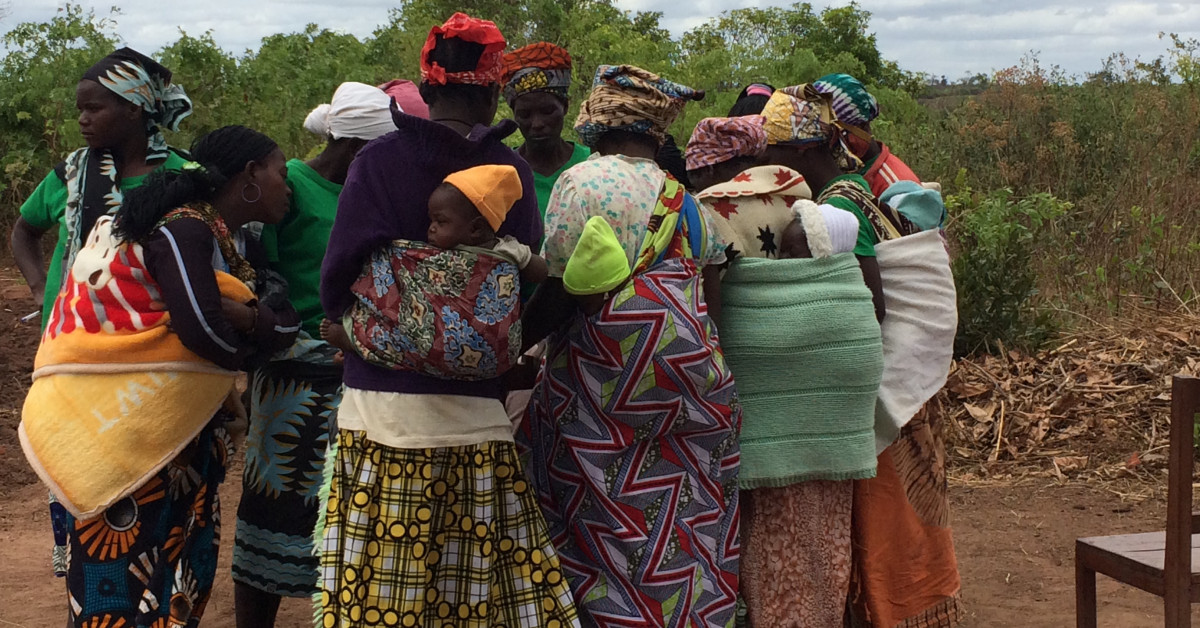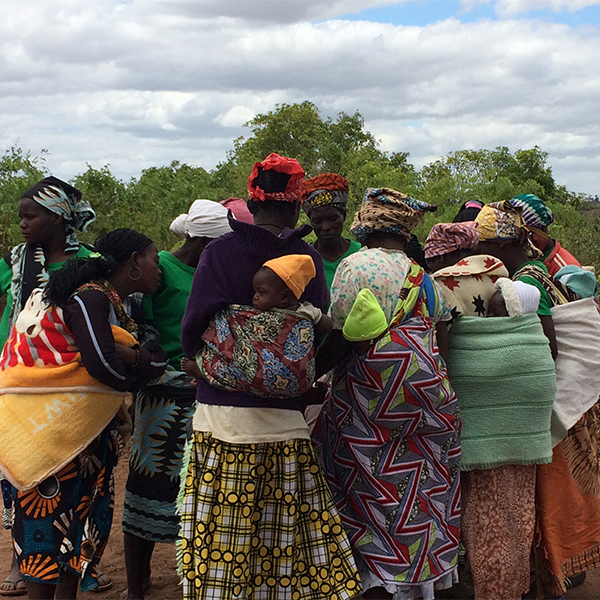
By Jane Kato-Wallace
This article was originally published in Concern Worldwide’s “Knowledge Matters: The journey towards addressing gender inequality“
Background
Situated in southeastern Africa, the Republic of Mozambique is experiencing a period of stable economic growth following a devastating civil war that left millions displaced or killed. However, the low-income country still faces development challenges.
Today, 43 percent of the population suffers from chronic undernutrition. This seriously impacts individual health and wellbeing, as well as future generations, with 17 percent of infants born with a low birth weight.1 Concern Worldwide’s2 barrier analysis of select districts in Manica Province, an area prone to natural disasters such as flooding and drought, also finds a high prevalence of undernutrition, sub-optimal, and young child feeding practices.3
Concern Worldwide’s Linking Agribusiness and Nutrition (LAN) project aims to tackle chronic malnutrition and extreme poverty in Mozambique in partnership with the private and public sectors. Concern’s approach integrates two well-established community-based delivery platforms for behavior change: Farmer Field Schools (FFS) and Care Groups across three districts in Manica.
However, Concern’s review of the project highlighted a number of limitations in its ability to improve women’s decision-making power and empowerment. These include alcohol abuse by some male farmers and a lack of female leadership and representation within the farmer field schools. Harmful norms and inequalities around gender must be addressed in order to strengthen strategies aimed at improving maternal, infant, and child nutritional outcomes, and to continue promoting the advancement of women. In order to do this, men must be engaged more intentionally as partners and as allies alongside women and girls in challenging such norms.
A Partnership Approach
Concern is collaborating with Equimundo to shift the LAN project from a gender-sensitive approach to one that is gender-transformative, and to increase the project’s capacity to engage men in order to improve mother and child nutrition. A gender-transformative approach challenges the underlying gender norms and practices that perpetuate inequality between men and women, as well as inequality among men and among women. At the heart of such an approach is the active questioning of what it means to be a man or woman in society and how such expectations can cause harm not only to those around them but to themselves. For example, men who ascribe to harmful definitions of masculinity often believe that “real men” do not cry. Such beliefs limit men’s capacity for emotional expression, often resulting in poor mental health. In Manica Province there is also a gender norm that “real men” do not care for children. Such norms tend to serve to burden women with both income generating and care/domestic work, as well as to further disconnect men emotionally from their children.
Equimundo,4 a global leader in engaging men and boys for gender equality, alongside a local partner HOPEM5 conducted formative research in six communities with male and female project participants to better understand their caregiving practices and attitudes about gender. The formative research highlights that both men and women face an immense amount of community and social pressure to conform to rigid community attitudes, expectations, and practices. However, some communities interviewed are beginning to challenge distribution of labor at the very least. For example, in some communities interviewed, women asserted that their male partners carry out household responsibilities such as caring for children and that women perform traditionally male-dominated tasks such as building houses and clearing fields for planting.
Results
Equimundo and HOPEM also carried out an intensive one-week training with Concern Worldwide Mozambique staff on gender-transformative approaches. The tools to promote reflection were the same as what one would use in the community. The approach utilizes a series of self-reflective and experiential learning approaches to unpack participants’ understanding of what it means to be a man or woman, as well as their own understanding and perspective on gender roles and norms in their context. For example, in one activity entitled “Persons and Things,” participants are paired and each person is assigned to be either a “Person” or a “Thing.” The “Persons” are allowed to control their “Things” however they wish. The “Things” must allow their “Person” to control them. Afterwards, participants reflect on how the use of power in relationships, intimate and otherwise, negatively affects us as individuals.
It is important to recognize that not everyone will agree with the principles of equality because it may cause them to think about issues that make them uncomfortable, such as: how controlling a female partner’s income is a form of violence (economic violence). There can be pushback and verbal challenges from staff members, but such disagreement is normal considering that these gender norms and practices have been learned from an early age. As was the case in Mozambique, it may be important to have the support of the Equality Adviser from Concern’s head office to participate in such trainings to add a supportive voice. In Mozambique, her knowledge of progress being made in other Concern country programs greatly assisted the Concern Mozambique team to realize how they can incorporate a gender-transformative approach into their own program. It is important to stress that gender equality is a “win-win” for both men and women as an overarching message.
A major challenge of integrating a gender-transformative approach is that changing gendered attitudes and practices takes time.
Concern in Mozambique, Equimundo, and HOPEM are working together to use the formative research findings and input from Concern staff to develop a gender-transformative manual that will guide the approach to engaging men in caregiving; maternal, newborn, and child health; and nutrition. The success of this project depends on the partnership with key local and international organizations: Equimundo, who brings its technical and global expertise, and HOPEM, who brings not just technical expertise, but also understanding of the local context. This partnership, coupled with Concern’s organizational and management commitment to the approach, exemplified by the leadership from Concern’s Equality Adviser, ensures a strong likelihood that significant positive changes can be made to the lives of women, men, and children in the LAN program.
A major challenge of integrating a gender-transformative approach is that changing gendered attitudes and practices takes time. It requires an investment on the part of Concern to actively promote positive norms as an institution. In the case of the LAN project, this meant watching a weekly television show hosted by a member of HOPEM called “Homem que é Homem” (“Man that is a Man”), which fosters discussion around taboo gender issues such as polygamy, alcoholism, and violence against women. Extra time in staff meetings is then set aside to reflect on the topics discussed that week or month in the television show.
Concluding Thoughts
The main lessons learned from the Mozambique experience is that challenging harmful gender norms requires a long-term investment on the part of the practitioner and their teams. Norms and practices do not change overnight. Think about ways in which this can be done, such as by attending trainings conducted by local civil society organizations on gender and masculinity or through group reflection using the tools developed by organizations focused on promoting gender-transformative change. It is important to remember that though this approach can be “mainstreamed,” it requires long-term thinking and financial resources. Country offices interested in integrating these approaches should aim to set aside at least 12 months to conduct initial sensitization training, link with local organizations already engaging in this work to exemplify its local and national relevance, finding and supporting institutional champions who can carry on the work internally, and developing, adapting, testing; and evaluating existing tools.
References and Content Notes:
- Syeda Sija Mehhabeenm, Concern (Jan 2014) ‘Linking Agribusiness and Nutrition in Mozambique: BAGC Baseline Survey Report, Manica Province’
- More information about Concern Worldwide is available on its website (https://www.concern.net/)
- Ibid
- More information about Equimundo is available on its website (https://www.equimundo.org/)
- More information about HOPEM is available on its website (http://www.hopem.org.mz/)
